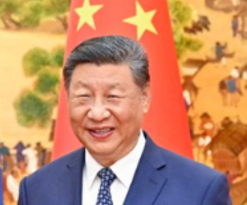During the China-Africa Cooperation Forum (FOCAC) Summit held in September, Ethiopian Prime Minister Abiy Ahmed highlighted China’s key role in driving self-sufficient development for African nations. In his meeting with Chinese President Xi Jinping, Abiy emphasized how China’s experience, combining modernization and historical preservation, offers valuable lessons for Ethiopia’s urbanization and economic growth.
One of the main examples of this collaboration is the Addis Ababa Special Economic Zone, launched in August 2024. This 35-hectare project, developed by China Communications Construction Company (CCCC), is transforming Ethiopia’s capital into an international trade hub and a high-end residential area. With the first phase expected to be completed in three years, the project aims not only to improve urban infrastructure but also to create jobs and raise the standard of living for the population.
Benin: €15 Million to “boost” industrialization
The partnership between China and Ethiopia has also fostered significant industrial growth. A notable example is the Huajian Group’s shoe factory in Ethiopia’s Eastern Industrial Park, which, under the guidance of Chinese economist Lin Yifu, has created more than 8,000 jobs and exports products to international markets. Lin emphasizes that leveraging local resources, such as Ethiopian labor and leather, is key to driving industrial development in Africa.
China not only supports Ethiopia but is also expanding its economic influence across the continent. The 8th China-Africa Entrepreneurs Conference, held during the FOCAC summit, demonstrated the growing interest of Chinese companies in investing in sectors such as digital technology, artificial intelligence, and biopharmaceuticals. Zhang Shaogang, Vice President of the China Council for the Promotion of International Trade (CCPIT), highlighted the complementarity between Chinese industries and Africa’s development needs, urging entrepreneurs to collaborate in areas such as supply chain integration and infrastructure development.
Digital infrastructure has also been a pillar of cooperation, with Chinese companies supporting network services for over 700 million African users. This has boosted e-commerce in countries like Ethiopia and South Africa, facilitating digitalization and logistics. Trade between China and Africa reached $282.1 billion in 2023, reflecting the steady growth of a relationship that has created over 1.1 million jobs across the continent in the past three years.
The collaboration between China and Ethiopia underscores a development model that can serve as an example for other African countries. With strategic projects like the Addis Ababa Special Economic Zone and the success of the manufacturing industry, Ethiopia is positioning itself as a leader in Africa’s industrialization and economic modernization process, with China as a key partner in this journey.
